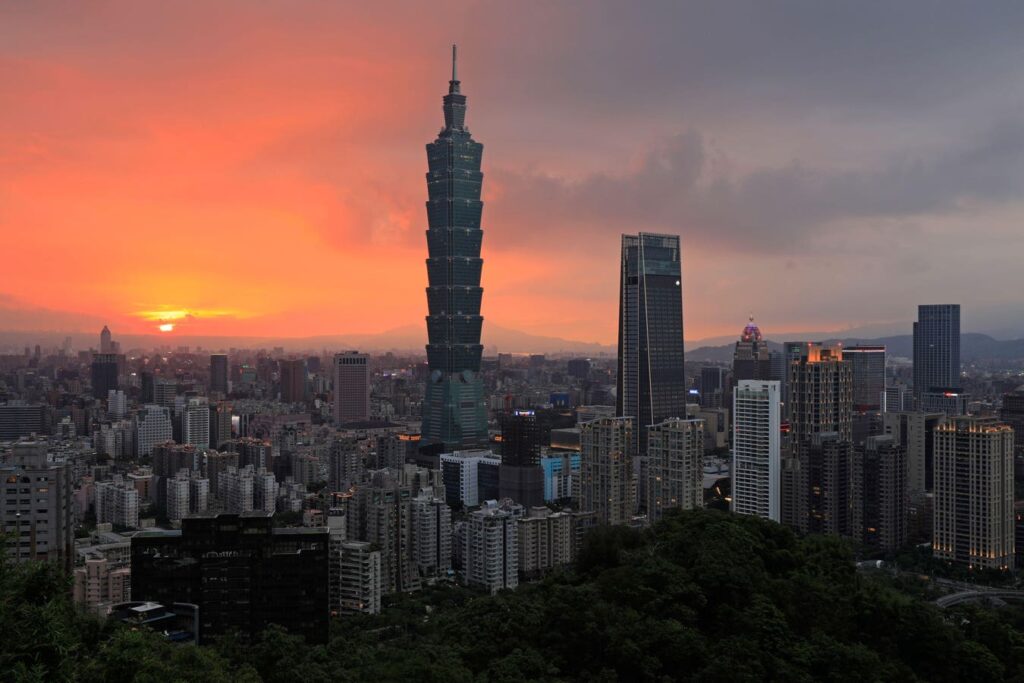Taiwan’s Strategic Shift in Investment: A New Direction Away from China
Taipei, Taiwan – As the sun sets over the vibrant skyline of Taipei, a significant economic shift is on the horizon that mirrors trends observed in the U.S., Europe, and Japan. The powerful business community on this island is strategically diversifying its investments, trading, and sourcing activities away from China, increasingly looking towards Southeast and South Asia and even as far as the United States. Such moves are unlikely to sit well with Beijing, especially in light of China’s current economic vulnerabilities, compounded by the potential loss of Taiwanese business support—a support system that has been pivotal for decades.
Unlike the overt maneuvers of Washington and Brussels, Taipei has opted for a more understated approach in its realignment. Diplomatic considerations have kept Taiwan from openly antagonizing China. Unlike the Western powers, Taipei has refrained from imposing new tariffs on Chinese goods or officially restricting investment flows. However, the subtle yet clear anti-China shift among Taiwanese businesses presents a notable parallel to the actions of their American, European, and Japanese counterparts.
Historically, China has been the go-to destination for sourcing, operations, and investments for developed economies. The allure was simple—low production costs and operational reliability. Beijing’s stringent demands on foreign enterprises were often overshadowed by the economically favorable conditions China offered. However, the economic landscape has transformed dramatically in recent years.
A significant factor in this shift is the rapid increase in Chinese wages, outpacing those in the rest of Asia and globally, which erodes China’s former cost advantage. Despite recent currency depreciation that temporarily alleviated this disadvantage, global businesses remain wary of currency volatility and its implications on long-term planning. Additionally, China’s once-sterling reputation for reliability has been tarnished by supply chain disruptions during the pandemic and stringent zero-COVID policies. Beijing’s growing focus on security has further introduced layers of bureaucratic complexity, making its market less attractive to international businesses.
The redirection of Taiwanese trade patterns provides concrete evidence of this economic pivot. Although China remains Taiwan’s largest trading partner, its trade share has steadily declined since 2021. That year, Taiwan’s trade with China amounted to $208.4 billion, constituting roughly a quarter of its overall trade. By 2023, this figure had dropped almost 20% to approximately $166 billion, down to just over one-fifth of Taiwan’s trade portfolio. In stark contrast, trade with Southeast Asia increased from $117.5 billion in 2021 to $134.6 billion in 2022—a nearly 10% rise within a year. Concurrently, Taiwan’s reliance on China for exports has diminished, with the difference largely redirected towards Southeast Asia.
Investment trends further highlight this strategic realignment. Taiwanese investments in China, which have been declining since 2010, plummeted by nearly 40% from the previous year in 2023, reaching a mere $4.17 billion—less than one-third of the 2018 level. Consequently, a significant portion of these investments has been channeled to Southeast Asian nations such as Singapore, Vietnam, Indonesia, Malaysia, and Thailand. Currently, these countries receive about 40% of Taiwan’s outbound investments, surpassing the proportion allotted to China. Particularly noteworthy is the burgeoning investment in Vietnam, especially in high-tech electronics, a sector critical to Beijing’s economic strategies. Major Taiwanese tech firms like Foxconn, Wistron, Pegatron, and Quanta are all amplifying their presence in Vietnam.
While these economic shifts are undoubtedly concerning for Beijing, the broader security implications are equally perturbing. Increased Taiwanese trade and investment in Southeast and South Asia enhance these regions’ stakes in Taiwan’s stability, potentially fostering resistance to any aggressive Chinese maneuvers. Although no Asian nation individually possesses the military strength to counter a potential Chinese takeover of Taiwan, the collective economic interests of a wider group of nations make such a scenario increasingly complex and diplomatically precarious for Beijing.
Figures and data referenced are sourced from historical records and contemporary economic analysis.
